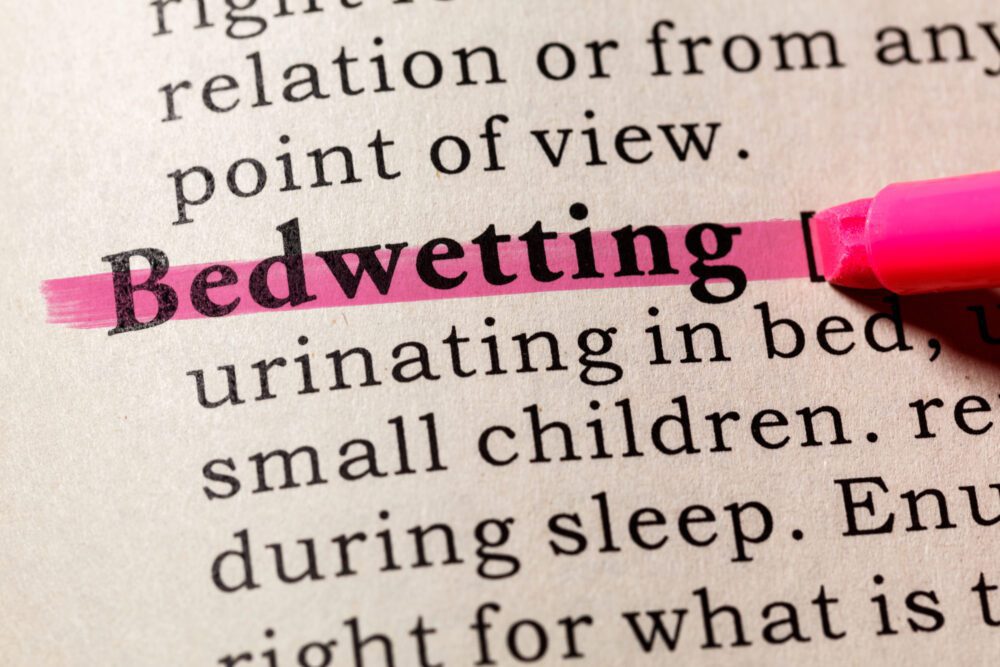Posts for Parents, Sleep Issues, Top Tips
Top Tips for Bedwetting

Bedwetting is fairly common in childhood, by the time children are 10, only about 5% of children still wet the bed. It is important to remember that bedwetting isn’t deliberate or lazy. Children will grow out of it.
Sometimes bedwetting can be caused by hormones or a small bladder, or issues with the bladder/brain connection in the nervous system, genetics or from being a very deep sleeper.
Bedwetting that lingers, as your child is growing-up can be upsetting for them and also their families. It can be tricky to find the root of the problem and remain positive and supportive throughout this time. However it is really important to support your child to not feel shame around this common childhood issue.
Below we have compiled some information that may help get things flowing in the right direction…
And a great start is to take a listen to Maggie’s chat with paediatric specialist Dr Megan Yap on this episode of Parental As Anything.
Top Tips:
- Be supportive and caring to bolster their self-esteem and wellbeing.
- Talk to your child about their body and how it works in a positive way.
- Consider a bedwetting alarm and when it goes off get up and help them to change their bedding and pyjamas.
- Ensure there is a safe and visible passage to the toilet.
- Talk to your child about what they think and how they feel and listen carefully for clues or ideas that may help them gain more control of themselves.
- Audio meditations, hypnotherapy and acupuncture/pressure have been reported by parents to help with bedwetting.
- Seek professional help if the child is bedwetting into school age, to gain a treatment plan and eliminate physical disorders.
- Co-operation is essential to creating a plan and working together to achieve goals.
- Support your child to have strategies to prevent or manage bedwetting if they are going on a sleepover, holiday or school camp. The Raising Children Network suggests communicating with other parents/teachers confidentially about your child’s concern and possibly using nasal hormone spray to reduce the amount of urine and supply your child with pull-ups or incontinence pants.
- Diet and fluid consumption affect bedwetting, in relation to bladder capacity, and also can impact constipation. Ask a healthcare specialist and devise a plan to suit your situation.
Research and resources:
- Australian National Continence Helpline, freecall 1800 33 00 66.
- The Bedwetting Institute fact sheet can be found here.
- Information sheet for children who want to enjoy a sleepover.
- The Raising Children Network has some excellent information on bedwetting.
- Some families have reported success using kinesiology to resolve bedwetting issues. When there is something difficult to change it is often due to an emotional memory that has created a belief in the brain that is unconscious – kinesiology is often very successful in changing it. Check the Australian Kinesiology Association web site for a practitioner near you.
Products:
- Visit our website for a variety of audio downloads that are ideal for bedtime.
- Bedwetting alarms have been very helpful in many cases. There are different systems, some involve a sleeping mat and bell set-up while other alarms attach to the pyjama top and by wire to the underclothes and the sensor is sounded when it makes contact with moisture. A health professional can give advice on this. Alarms do not work for all children but may be worth checking out.
- Waterproof mattress covers.
And finally…. you might find this helpful.
Image credit: By Devon/Depositphotos.com




 Manage Membership
Manage Membership